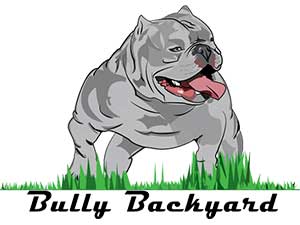American Bully Food Allergies
Food allergies in American Bullies can present a significant challenge for pet owners, impacting the overall well-being of these beloved companions. The manifestation of symptoms like itchiness, hair loss, and redness can be distressing, prompting the need for careful consideration of dietary choices.
However, the complexities of identifying and managing these allergies require a strategic approach that goes beyond mere guesswork. Understanding the nuances of food allergies in American Bullies is not only essential for their health but also pivotal in fostering a thriving relationship between pets and their owners.
Understanding Food Allergies in American Bullies
Food allergies in American Bullies manifest through a range of symptoms such as vomiting, diarrhea, hives, and itching, indicating an intricate immunological response to specific dietary components. These allergic reactions can vary in severity, with some dogs experiencing anaphylaxis, a severe and potentially life-threatening condition. It is vital for American Bully owners to work closely with a vet to identify the allergen causing these adverse reactions.
In addition to immediate allergic reactions, American Bullies can also suffer from food sensitivities that lead to ongoing issues. Symptoms of food sensitivities may include progressive responses to irritating elements in their diet, resulting in vomiting, diarrhea, itching, poor skin health, and susceptibility to infections. Understanding the distinction between food allergies and sensitivities is essential for implementing appropriate dietary changes and effectively managing the health of American Bullies.
Veterinary guidance and diagnostic tools can aid in pinpointing the specific triggers, allowing for the formulation of tailored nutritional plans to alleviate these distressing symptoms.
Common Allergens to Watch For
When considering potential triggers for allergic reactions in American Bullies, it is prudent to be aware of the common allergens that may provoke adverse responses in these dogs. Common food allergens for American Bullies include maize, wheat, dairy, soy, eggs, chicken, pig, and beef. It's important for owners to carefully check dog food ingredients to avoid these allergens that can trigger food sensitivities in their pets.
Additionally, some American Bullies may also react to fish and rabbit allergies, so monitoring their reactions to these proteins is important. In cases where dietary adjustments do not show improvement, environmental allergy tests can be conducted to identify other triggers.
To eliminate food allergies in American Bullies, switching to venison, duck, or bison mixed with sweet potatoes or pumpkin is recommended. By being vigilant about these common allergens and making informed dietary choices, owners can help manage and alleviate food allergies in their American Bullies effectively.
Impact of Dairy, Pork, and Fish
Dairy, pork, and fish are known allergens that can have a substantial impact on the health of American Bullies, potentially causing a range of adverse reactions.
Dairy products can commonly trigger food allergies in American Bullies, leading to symptoms like itching, digestive issues, and skin problems.
Pork is another potential allergen for American Bullies, causing adverse reactions such as vomiting, diarrhea, and skin irritation.
Fish allergies in American Bullies can manifest as itching, hives, or gastrointestinal disturbances.
It is important to identify and avoid these allergens to prevent allergic reactions effectively.
Eliminating dairy, pork, and fish from the dog's diet can help manage and prevent these issues.
Consultation with a veterinarian is essential to determine specific food allergies to dairy, pork, or fish in American Bullies, leading to tailored dietary recommendations.
Being aware of these allergens and their potential impact can greatly contribute to the well-being and health of American Bullies.
Concerns With Wheat, Corn, Soy
The prevalence of allergies related to wheat, corn, and soy poses significant concerns for the health and well-being of American Bullies. These ingredients are common allergens for American Bullies, often leading to symptoms such as itching, digestive issues, and skin problems. Given that wheat, corn, and soy are frequently present in commercial dog foods and treats, it can be challenging to avoid exposure to these potential allergens.
To address food allergy symptoms and enhance the overall health of American Bullies, eliminating wheat, corn, and soy from their diet is essential. Allergic reactions to these ingredients can vary from mild discomfort to severe responses, underscoring the importance of careful ingredient selection. Working closely with a veterinarian to identify and manage food allergies related to wheat, corn, and soy can greatly improve the well-being of American Bullies. By being mindful of these common allergens and making informed dietary choices, owners can help their pets lead healthier and more comfortable lives.
Testing for Allergic Reactions
Considering the prevalence of food allergies among American Bullies, exploring testing methods for allergic reactions becomes imperative for effective management of their health.
Two common methods used to identify food allergies in American Bullies are skin tests and blood tests. Skin tests involve injecting small amounts of allergens under the skin to observe reactions, helping pinpoint common triggers such as dairy, beef, soy, and wheat.
On the other hand, blood tests measure antibodies in the bloodstream to identify specific food allergens, providing valuable insight into the specific allergens causing adverse reactions in American Bullies.
Identifying these specific allergens through testing is essential for developing tailored management strategies, including appropriate dietary adjustments and potential allergen avoidance. By undergoing thorough testing to determine the exact triggers of allergic reactions, pet owners and veterinarians can work together to create effective management plans that prioritize the health and well-being of American Bullies with food allergies.
Managing Allergies in American Bullies
Effectively managing allergies in American Bullies requires a collaborative approach with a veterinarian to accurately identify allergens causing adverse symptoms such as vomiting, diarrhea, hives, and itching.
When American Bullies exhibit symptoms of food sensitivities like vomiting, diarrhea, itching, poor skin condition, or infections, conducting a diet elimination procedure can help pinpoint the allergens triggering these adverse reactions.
If dietary adjustments do not lead to improvements, environmental allergy tests can be utilized to further investigate potential allergens in American Bullies suspected of having food allergies.
Collaborating closely with a vet is essential for effectively managing and treating food allergies in American Bullies. By following a systematic approach that combines vet expertise with diagnostic tools like diet elimination and environmental allergy tests, pet owners can work towards identifying and addressing the specific allergens causing distress to their American Bully, ultimately improving their quality of life and well-being.
Conclusion
In summary, identifying and managing food allergies in American Bullies is vital for their health and well-being. Common allergens such as chicken, beef, wheat, corn, soy, and dairy products can trigger symptoms like itchiness, hair loss, and redness.
Working closely with a vet to pinpoint the allergen and making necessary dietary adjustments can help alleviate discomfort caused by food allergies in these dogs. Proper testing and management strategies are essential in ensuring the overall health of American Bullies.

